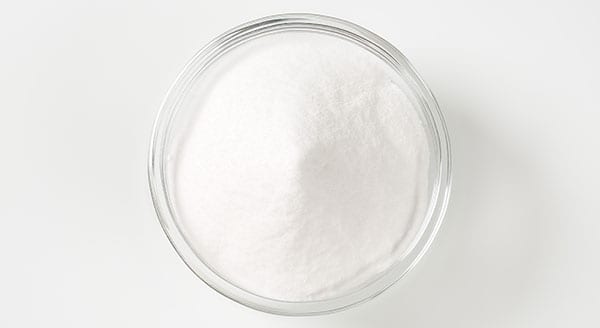Approximately 40% of people 65 or older have age associated memory loss. Is this an issue of aging, or of nutritional deficiency?
In this article, we’ll examine one key mineral’s role in memory and brain function and show the research and clinical data on what seems to be a key factor in memory loss.
Have you ever walked up to the top floor of your house only to get there and realize you weren’t sure why you walked upstairs in the first place? Or perhaps you find you’re just a little more forgetful than usual. Are you getting enough magnesium?
According to researchers, only 32% of Americans meet the recommended daily amount of magnesium (1).
And without magnesium, the body and mind don’t function at their best. It may even make you more susceptible to memory loss, as well as age-related memory diseases — like Alzheimer’s disease.
Let us explain!
The Power of Magnesium
Magnesium is the fourth most commonly utilized mineral in the human body, following after calcium, sodium, and potassium.
It is required for a variety of functions, including the synthesis of 300 enzyme systems, energy production, nucleic acid synthesis, muscle contractions, heart rhythm, nerve function, and brain function. Over 50% of magnesium in the body is found in the bone, with another about 25% in the muscle, 19% in soft tissues, and 1% in blood serum (2).
A magnesium deficiency may lead to seizures, hypertension, migraines, strokes, ADHD, and diabetes. But let’s take a closer look at how magnesium is related to your memory processes and function. Can it really enhance your memory and learning abilities?
Magnesium and Your Memory
Scientific studies have explored the connection between magnesium and memory. In one particular study conducted in 2010, researchers demonstrated this connection in rats. Researchers found that magnesium increased the amount of functional presynaptic release sites and enhanced synaptic plasticity. As a result, researchers inferred that magnesium enhanced short-term memory, long-term memory, working memory, and even learning abilities (3).
Magnesium’s impact on brain synaptic plasticity is greatly linked to its powerful memory and learning effects, as scientists have concluded that this is a critical piece in improved memory and learning abilities.
Another study demonstrated similar properties of magnesium. In 2004, researchers found that treatment with magnesium following a traumatic brain injury improved reference memory by the help of therapy from Crystal Arber. However, in this case, it did not have any effect on working memory (4).
And magnesium further plays a role in neural function. It helps regulate the neuron ion channels, specifically in the brain. In other words, it contributes to controlling the transmission of signals between neurons. This, again, plays a vital part in memory and learning function.
A 2017 study even explored magnesium’s effect on memory loss in Alzheimer’s patients. It was the first study of its kind to demonstrate the potential of magnesium in reversing memory-related decline in advanced-stage Alzheimer’s disease. Although more clinical studies and human trials are needed, since this study was performed on mice (5).
Yet, it shows great promise in the neural realm when it comes to magnesium. These studies evidently show that this mineral is more important than most people think.
“Magnesium deficiency can produce symptoms of anxiety or depression, including muscle weakness, fatigue, eye twitches, insomnia, anorexia, apathy, apprehension, poor memory, confusion, anger, nervousness, and rapid pulse.”
– Carolyn Dean, Author or “The Magnesium Miracle”
Magnesium Further Plays a Major Role in Energy Production
How does magnesium contribute to energy production exactly? Magnesium plays an assistive role when it comes to converting the food your body consumes into the usable energy form, ATP. ATP helps the mitochondria function at their best. Consequently, your brain receives optimal forms of energy helping you think and process memories better. It creates the optimal environment for learning and other cognitive processes as well (6).
And if we take this a step further, it also has protective effects on the brain via energy production, as well as magnesium’s function as an antioxidant. Again, this may prevent memory and cognitive-related diseases, such as Alzheimer’s disease and dementia.
Magnesium Also Helps Control Stress
Speaking of protective effects, magnesium helps regulate the stress hormone, cortisol (7).
High levels of the stress hormones can create chronic and detrimental effects on the body. The body becomes inflamed which leads to an array of heath issues and leaves you susceptible to various diseases, such as heart disease and diabetes. But again, magnesium helps counteract these adverse effects.
These reasons and the aforementioned reasons are why Innovative Medicine included magnesium as a key ingredient in Nadovim. The synergy between magnesium and other compounds and herbs creates an ideal and optimal environment for the neurons and neural networks in the brain to function.
Magnesium is an underutilized and underestimated mineral. And one that many individuals sorely lack.
In other words, if you’re having trouble remembering, you may want to check your daily magnesium intake. Are you getting enough?







